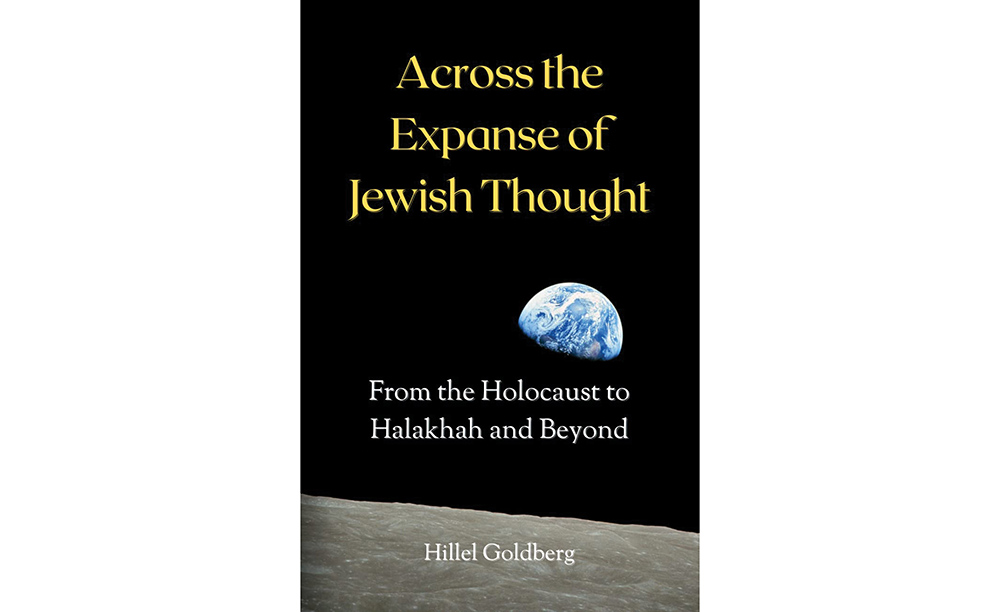By Rabbi Marc D. Angel

Reviewing: “Across the Expanse of Jewish Thought,” by Rabbi Hillel Goldberg. Ktav Publishing. 2022. English. Hardcover. 320 pages. ISBN-13: 978-1602804616.
Archilochus, an ancient Greek poet, observed: “The fox knows many things, but the hedgehog knows one big thing.” Sir Isaiah Berlin used this line as a metaphor for different kinds of thinkers. Some, like the fox, know many topics, have wide-ranging intellectual concerns. Others, like the hedgehog, have one central idea that dominates their thinking.
Rabbi Dr. Hillel Goldberg draws on the fox and hedgehog imagery in his new book, “Across the Expanse of Jewish Thought.” He notes that he, like the hedgehog, has one central focus—Torah Judaism. But, like the fox, he also has a wide range of intellectual interests including science, history, philosophy, literature and more.
Rabbi Goldberg’s book is a classic example of the combined focus of a hedgehog and the expansiveness of the fox. He has a fine eye for detail. His studies in biblical texts and prayers hone in on words, patterns and nuances. But they reflect the larger vision of works that put us in relationship with the Almighty. So it is with the structure of the book as a whole. He addresses particular themes in a penetrating manner … but also explores the larger meanings and implications of each topic.
The subtitle of this book is “From the Holocaust to Halakhah and Beyond.” This gives the reader an idea of the scope of material covered in this book. Rabbi Goldberg writes about Holocaust theology and what we can learn from the survivors themselves. He explores themes in prayer, biblical commentary, musar, Jewish law, philosophy; and he offers biographical studies of Rav Kook and Professor (Rebbe Dr.) Isadore Twersky.
Rabbi Goldberg is an engaging writer with a distinctive style. His prose is modulated. It gives the reader time to think, to digest the words. In discussing Abraham and the Akeida, Rabbi Goldberg writes: “This is the paradox: Abraham finds his own way to God’s way. Actually, however, Abraham transcends paradox. He does not have two separate sides. Now he is submissive, now he is creative: it is not this way. Abraham melds the will of God and the will of man. As much as possible for any human being, Abraham unifies Infinity and finitude.” (p. 171)
As a hedgehog, Rabbi Goldberg focuses on the detailed mandates of the Halakha. As a fox, he seeks the meanings that undergird the details and that soar heavenward. He writes: “By His love and grace, God issued Halakhah as the sovereign over all ritual, ethical and social necessities; equally, by His love and grace, God endowed the human being with the capability and curiosity to unveil secrets of the universe” (p. 210). Rabbi Goldberg notes that Halakha “creatively juxtaposes divine knowledge and human knowledge of the natural world. It shapes social reality and embraces other disciplines of divine knowledge” (p. 212).
On a personal note, Rabbi Goldberg and I were fellow students at Yeshiva College during the 1960s. Even then, I learned to appreciate his soft-spoken, thoughtful manner of communication. Over these many years, I have learned much from his writings, and have enjoyed his masterful articles and editorials in the Intermountain Jewish News. When I read his works, I somehow feel that I am hearing his voice … calm, thoughtful, precise, challenging. More than a hedgehog, more than a fox: Rabbi Goldberg is a thinking rabbi who incorporates and transcends both.
Marc D. Angel is rabbi emeritus of Congregation Shearith Israel, the Spanish and Portuguese Synagogue in New York City, a position he has held since 1969.









